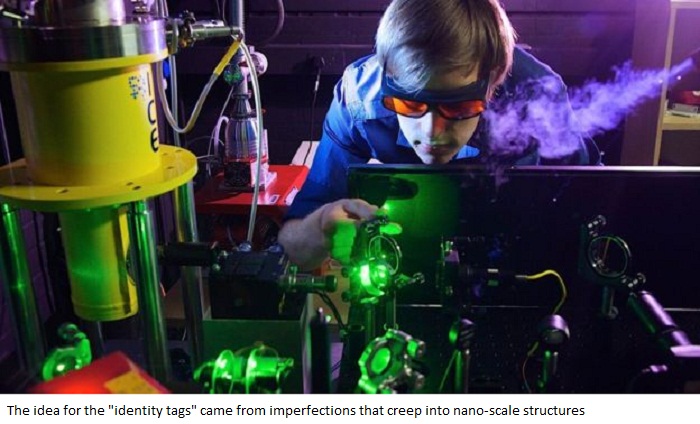The tiny identity tags are essentially tiny imperfections in the building blocks of matter, making them virtually impossible to clone.
They could be used as the basis of a robust system for authenticating hardware and software.
Details of the work are published in the journal Scientific Reports.
The researchers from the UK universities of Lancaster and Manchester built tiny, layered metallic structures in the lab and incorporated "design flaws" that were unique to the item.
"What you do is shrink these systems down as far as they will go," Dr Jonathan Roberts from Lancaster told BBC News.
"And the interesting thing is that you can`t clone them. To clone them, you`d effectively have to measure [the fingerprints] atom-by-atom. You just can`t do it."
The fingerprint structures were demonstrated at the nano-scale where the laws of quantum mechanics take over from the ones that predominate at larger scales.

But the researchers say it is a proof of principle which could be integrated into existing chip manufacturing processes.
"These could be used to authenticate any electronic equipment and be 100% secure," said Dr Roberts.
"Having one of these devices in each and every piece of electronic equipment, you could challenge that electronic device and see what it outputs in order to identify it."
"If you imagine self-driving cars communicating with a fake server, that could have dramatic consequences."
The technology is already being commercialised through a spin-out company Quantum Base.
















































